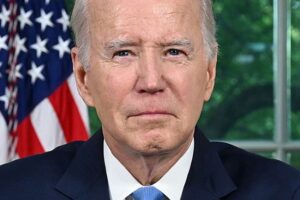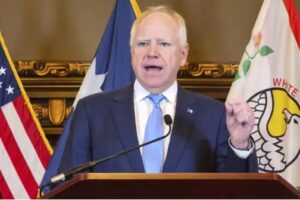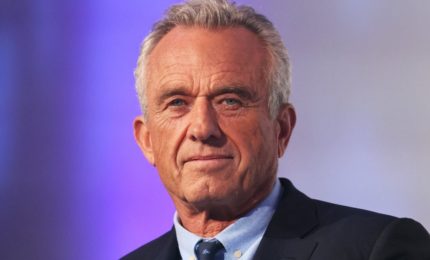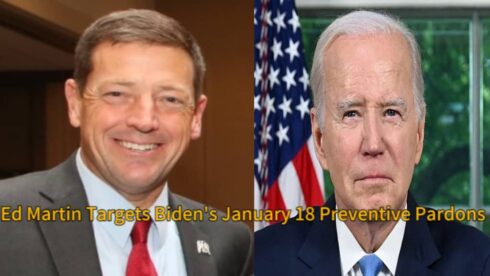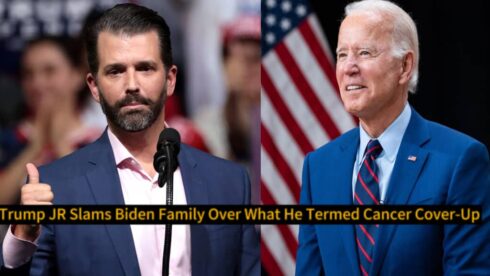President-elect Donald Trump has officially nominated Robert F. Kennedy Jr. to head the Department of Health and Human Services (HHS), a decision stirring considerable debate in Washington. The selection, announced by Trump on Thursday, highlights the administration’s intent to overhaul public health and regulatory standards. Trump described his choice as a commitment to “the health and safety of all Americans,” asserting that Kennedy would restore the agency’s commitment to scientific transparency.
Robert F. Kennedy Jr, a prominent critic of mainstream vaccine policies, accepted the position with a focus on combating what he calls “corporate capture” within the department. His nomination has raised immediate concerns among public health advocates, given his history of vaccine skepticism, making the Senate confirmation process likely contentious.
Controversial Background on Vaccine Policies
Robert F. Kennedy Jr. has built a reputation as a prominent skeptic of vaccine safety and efficacy, leading to both public support and widespread criticism. Known for his vocal opposition to vaccine mandates, Robert F. Kennedy Jr has argued that current vaccine policies and regulations compromise public health. He has pledged to reevaluate the role of vaccines in American healthcare, raising concerns among experts about the impact of his stance on vaccine acceptance and public health.
Trump’s decision to nominate Kennedy has already led to stock declines among vaccine manufacturers, reflecting market apprehension over potential policy shifts. Critics argue that Robert F. Kennedy Jr’s views could undermine essential vaccine programs if he assumes control of HHS, while supporters see his appointment as a step toward “health freedom” and personal medical choice.
Robert F. Kennedy Jr’s Vision for HHS: Combating Corporate Influence
In his acceptance statement, Robert F. Kennedy Jr emphasized a commitment to removing “corporate capture” from the agency. He has often accused pharmaceutical and chemical companies of influencing health policy for profit, an issue he believes has harmed public health. Kennedy envisions an HHS that operates transparently, allowing Americans to make informed health choices without corporate interference.
Robert F. Kennedy Jr’s goals include addressing chronic disease rates through stricter regulation of chemicals, pollutants, and additives. He has also indicated plans to revisit food and environmental safety standards, which he claims have been compromised by corporate interests. His focus on transparency and agency independence could redefine HHS operations, though critics argue that Kennedy’s policies may sideline established public health principles.
Challenges Ahead: Senate Confirmation and Policy Revisions
Robert F. Kennedy Jr’s appointment is expected to face a challenging Senate confirmation, with opposition from both Democrats and Republicans. His outspoken criticism of existing vaccine policies has alienated some in Congress, who argue his views could disrupt critical public health programs. California Democrat Robert Garcia has been particularly vocal, calling Kennedy’s nomination “insane” and warning of potential risks to the nation’s health infrastructure.
Despite this, Trump has been steadfast in his support, asserting that Kennedy’s appointment aligns with his administration’s promise to reform health policy. The confirmation process will test the loyalty of Senate Republicans, some of whom have historically supported vaccine initiatives. The outcome of the confirmation will play a crucial role in determining the future direction of health policy under the Trump administration.
Public Health Community Reacts with Strong Opposition
The public health community, represented by organizations such as the American Public Health Association (APHA), has voiced strong objections to Kennedy’s nomination. APHA executive director Georges C. Benjamin expressed grave concerns, citing Kennedy’s lack of relevant training and management skills as significant barriers to effective leadership. Benjamin warned that Kennedy’s policies could compromise the agency’s ability to respond to future health crises.
Benjamin and other health advocates plan to lobby against Kennedy’s confirmation, seeking to prevent what they see as a risky deviation from science-based policy. The APHA has announced a concerted effort to raise public awareness about the implications of Kennedy’s leadership, fearing that his influence could hinder the agency’s pandemic response capabilities.
Kennedy’s Goals: A Radical Shift in Public Health Policy
Kennedy has set ambitious goals for his tenure at HHS, targeting an overhaul of vaccine research and public health guidelines. He has advocated for studying vaccine safety without removing vaccines from the market, focusing instead on transparency. Additionally, he has proposed controversial measures, such as eliminating fluoride from drinking water, citing health concerns despite opposition from many health experts.
In his outline for HHS, Kennedy promised “measurable impacts” in reducing chronic diseases, aiming for a shift in public health within two years. His agenda reflects a blend of skepticism toward conventional medicine and a commitment to personal health choice, resonating with some but raising alarms among established health professionals. The confirmation of Kennedy’s nomination may signal a transformative—and highly debated—era for U.S. health policy.




